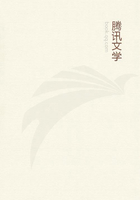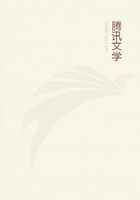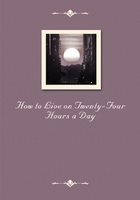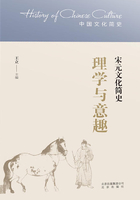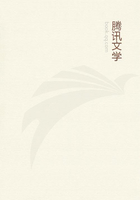No: in the vile, life limps: it is like the eye to the dim-sighted; it fails of its task.
But if the mingled strand of life is to us, though entwined with evil, still in the total a good, must not death be an evil?
Evil to What? There must be a subject for the evil: but if the possible subject is no longer among beings, or, still among beings, is devoid of life...why, a stone is not more immune.
If, on the contrary, after death life and soul continue, then death will be no evil but a good; Soul, disembodied, is the freer to ply its own Act.
If it be taken into the All-Soul- what evil can reach it There?
And as the Gods are possessed of Good and untouched by evil- so, certainly is the Soul that has preserved its essential character.
And if it should lose its purity, the evil it experiences is not in its death but in its life.Suppose it to be under punishment in the lower world, even there the evil thing is its life and not its death; the misfortune is still life, a life of a definite character.
Life is a partnership of a Soul and body; death is the dissolution; in either life or death, then, the Soul will feel itself at home.
But, again, if life is good, how can death be anything but evil?
Remember that the good of life, where it has any good at all, is not due to anything in the partnership but to the repelling of evil by virtue; death, then, must be the greater good.
In a word, life in the body is of itself an evil but the Soul enters its Good through Virtue, not living the life of the Couplement but holding itself apart, even here.
EIGHTH TRACTATE.
ON THE NATURE AND SOURCE OF EVIL.
1.Those enquiring whence Evil enters into beings, or rather into a certain order of beings, would be making the best beginning if they established, first of all, what precisely Evil is, what constitutes its Nature.At once we should know whence it comes, where it has its native seat and where it is present merely as an accident; and there would be no further question as to whether it has Authentic-Existence.
But a difficulty arises.By what faculty in us could we possibly know Evil?
All knowing comes by likeness.The Intellectual-Principle and the Soul, being Ideal-Forms, would know Ideal-Forms and would have a natural tendency towards them; but who could imagine Evil to be an Ideal-Form, seeing that it manifests itself as the very absence of Good?
If the solution is that the one act of knowing covers contraries, and that as Evil is the contrary to Good the one act would grasp Good and Evil together, then to know Evil there must be first a clear perception and understanding of Good, since the nobler existences precede the baser and are Ideal-Forms while the less good hold no such standing, are nearer to Non-Being.
No doubt there is a question in what precise way Good is contrary to Evil- whether it is as First-Principle to last of things or as Ideal-Form to utter Lack: but this subject we postpone.
2.For the moment let us define the nature of the Good as far as the immediate purpose demands.
The Good is that on which all else depends, towards which all Existences aspire as to their source and their need, while Itself is without need, sufficient to Itself, aspiring to no other, the measure and Term of all, giving out from itself the Intellectual-Principle and Existence and Soul and Life and all Intellective-Act.
All until The Good is reached is beautiful; The Good is beyond-beautiful, beyond the Highest, holding kingly state in the Intellectual-Kosmos, that sphere constituted by a Principle wholly unlike what is known as Intelligence in us.Our intelligence is nourished on the propositions of logic, is skilled in following discussions, works by reasonings, examines links of demonstration, and comes to know the world of Being also by the steps of logical process, having no prior grasp of Reality but remaining empty, all Intelligence though it be, until it has put itself to school.
The Intellectual-Principle we are discussing is not of such a kind: It possesses all: It is all: It is present to all by Its self-presence: It has all by other means than having, for what It possesses is still Itself, nor does any particular of all within It stand apart; for every such particular is the whole and in all respects all, while yet not confused in the mass but still distinct, apart to the extent that any participant in the Intellectual-Principle participates not in the entire as one thing but in whatsoever lies within its own reach.
And the First Act is the Act of The Good stationary within Itself, and the First Existence is the self-contained Existence of The Good;but there is also an Act upon It, that of the Intellectual-Principle which, as it were, lives about It.
And the Soul, outside, circles around the Intellectual-Principle, and by gazing upon it, seeing into the depths of It, through It sees God.
Such is the untroubled, the blissful, life of divine beings, and Evil has no place in it; if this were all, there would be no Evil but Good only, the first, the second and the third Good.All, thus far, is with the King of All, unfailing Cause of Good and Beauty and controller of all; and what is Good in the second degree depends upon the Second-Principle and tertiary Good upon the Third.
3.If such be the Nature of Beings and of That which transcends all the realm of Being, Evil cannot have place among Beings or in the Beyond-Being; these are good.
There remains, only, if Evil exist at all, that it be situate in the realm of Non-Being, that it be some mode, as it were, of the Non-Being, that it have its seat in something in touch with Non-Being or to a certain degree communicate in Non-Being.
By this Non-Being, of course, we are not to understand something that simply does not exist, but only something of an utterly different order from Authentic-Being: there is no question here of movement or position with regard to Being; the Non-Being we are thinking of is, rather, an image of Being or perhaps something still further removed than even an image.

